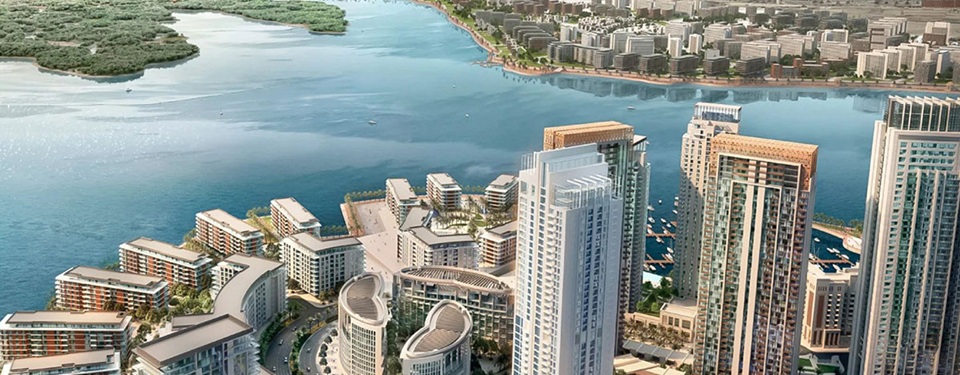Tips to Avoid Hidden Fees When Buying Off-Plan Properties
Saturday, 4 October 2025
Investing in off-plan properties can be an exciting opportunity for buyers looking to own a home or secure a lucrative investment. With attractive pricing, flexible payment plans, and the potential for high returns, off-plan properties have become increasingly popular. However, while the benefits are clear, it’s essential to be aware of additional or hidden fees that can affect your total investment cost. Being informed helps ensure a smooth, stress-free property purchase and maximizes your returns.
Table of Contents
- What Are Off-Plan Properties?
- Key Hidden Fees to Watch Out For
- Tips to Avoid Unexpected Costs
- Common Pitfalls to Avoid
- Frequently asked questions
What Are Off-Plan Properties?
Off-plan properties are those purchased before construction is complete, often based on architectural plans, 3D renderings, or developer presentations. Buyers can benefit from:
- Lower prices compared to ready properties
- Flexible installment payment plans
- Capital appreciation by the time construction is completed
- Customization opportunities for finishes, layouts, or features
However, without careful planning, hidden costs can reduce profitability or strain finances.
Key Hidden Fees to Watch Out For
When buying off-plan, consider the following potential costs beyond the advertised price:
- Legal Fees: Contracts and agreements require proper review to ensure buyer protection. Legal fees cover:
- Contract vetting
- Due diligence
- Guidance on local regulations
- Government Fees: Dubai requires property registration and stamp duties that may not be included in the property price.
- Inspection and Valuation Fees: Professional assessments help verify construction quality and property valuation, ensuring transparency.
- Service Charges and Maintenance Costs: Many developments impose service charges or community fees for upkeep, which buyers must budget for.
Tips to Avoid Unexpected Costs
Follow these practical tips to keep your investment predictable and free from surprises:
1. Research the Developer Thoroughly
Choose developers with a strong track record of timely project delivery and high-quality construction. Check past projects, online reviews, and any legal disputes to ensure reliability.
2. Verify Project Approvals and Documentation
Confirm that the project has proper approvals, building permits, and legal ownership documentation. Hiring a legal expert to review contracts ensures all terms are clear and enforceable.
3. Understand Payment Plans Clearly
Off-plan projects often offer flexible payment structures. Study the plan carefully to know when installments are due, interest rates (if financing), and any penalties for late payments.
4. Include Contingency for Delays
Construction delays are common due to weather, supply chain, or unforeseen events. Factor in a buffer in your financial planning to accommodate minor delays without stress.
5. Plan Your Exit Strategy Early
Whether you intend to sell or rent the property after completion, research market trends and resale potential. Knowing your exit options helps prevent financial surprises and optimizes returns.
6. Monitor Construction Progress
Regularly visiting the site or requesting updates ensures the developer follows agreed-upon plans, quality standards, and timelines, reducing the risk of extra costs for corrections later.
7. Factor in All Additional Charges
Make a comprehensive list of all fees—legal, registration, inspection, service charges—and budget for them from the start. This avoids unexpected financial pressure during or after the purchase.
Common Pitfalls to Avoid
- Not reading contracts carefully: Always review penalty clauses, cancellation terms, and material specifications to avoid hidden costs.
- Overleveraging financially: Borrow only what you can comfortably afford to repay, including maintenance and service fees.
- Ignoring market trends: Choose locations with strong infrastructure, future developments, and high rental demand to maximize returns.
Buying an off-plan property can be a rewarding investment when approached strategically. By conducting thorough research, verifying project approvals, understanding payment plans, and budgeting for all additional fees, you can confidently avoid hidden costs.
Being proactive, informed, and financially prepared ensures a smooth off-plan property purchase while maximizing potential returns. With these tips, you can enjoy a positive investment experience and secure a property that meets both your goals and expectations.
Frequently Asked Questions (FAQs)
What are off-plan properties?
Off-plan properties are homes purchased before construction is complete, often based on architectural plans or developer renderings. They offer lower prices, flexible payment plans, and potential for capital appreciation.
What hidden fees should I expect when buying off-plan?
Hidden fees may include legal fees, government registration charges, inspection or valuation costs, service charges, and maintenance fees. Budgeting for these ensures a smooth investment.
How can I avoid unexpected costs in off-plan property investments?
Research the developer’s reputation, verify project approvals, understand the payment plan, monitor construction progress, and budget for all additional charges.
Why is it important to check a developer’s track record?
A reputable developer ensures timely project completion, high-quality construction, and compliance with legal standards, reducing the risk of delays or extra costs.
How can I plan my investment effectively in off-plan properties?
Plan an exit strategy, consider market trends, include a financial buffer for delays, and work with trusted real estate professionals to make informed and profitable decisions.





